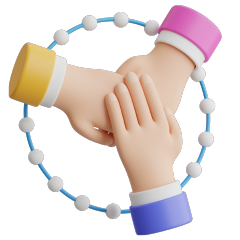Mark’s story about life with NDIS support for bipolar disorder and anxiety

Mark shares how NDIS support for bipolar disorder helps him manage daily life, build routine, and feel more stable one step at a time.
Table of Contents
Mark lives with bipolar disorder and generalised anxiety disorder (GAD), conditions that can make daily life unpredictable and isolating.
Having the right support from Leora helps bring structure and calm to Mark’s life through steady routines, practical assistance and his amazing care team who support him every day.

What is bipolar disorder?
Bipolar disorder is a mental health condition characterised by significant mood swings, from depressive lows to manic highs. These shifts can affect energy, decision-making, sleep and concentration and often make it difficult to maintain stability in daily life.
On the other hand, generalised anxiety disorder involves persistent and excessive worry, often about everyday matters. People with GAD may feel restless, find it hard to concentrate, or experience physical symptoms like fatigue, tension or difficulty sleeping.
These are often invisible conditions that can impact someone’s ability to manage day-to-day tasks, maintain work or relationships or feel safe in their routines.
NDIS support for bipolar disorder and anxiety
The NDIS recognises psychosocial disability, including bipolar disorder and GAD, as eligible for support. This can include:
- Help managing daily tasks like appointments, shopping and personal care
- Support workers to provide structure and stability
- Access to therapeutic services (psychology, counselling, occupational therapy)
- Help with building social connection and reducing isolation
- Plan management and coordination to reduce stress and confusion around services

Mark’s experience is an example of how NDIS support for bipolar disorder can bring calm, connection and practical help to people living with complex mental health conditions.
Keeping things steady
Mark’s support workers at Leora visit twice a week. They help with grocery shopping and sit with him for lunch afterwards. It’s this small, dependable support and companionship that brings rhythm to his week.
“We don’t really talk much, but they stay with me. And that’s helpful,” Mark says.
For Mark, it’s enough to have someone nearby, someone steady and respectful who lets him go about the day at his pace.
Mark is supported by his Care Coordinator, Geanette, who assists him and his support workers. She checks in regularly, listens and makes sure things run the way they should. Providing care like this helps people living with anxiety and bipolar disorder feel more stable, supported and in control of their day-to-day.
“She’s so helpful. She cares, and you can tell that she cares when I speak to her. I enjoy speaking to Geanette, she’s wonderful,” Mark shares.
Looking ahead
Mark’s next goal is to become more social. “I want to get more sociable. I’m quite isolated. I don’t have any friends that live close by,” he says.
He’s currently waiting to hear back about some local day programs that could help create more opportunities for connection.
In the meantime, he fills his days with what matters most like following the English Premier League (Chelsea is his team!) and spending time with his 11-year-old son. They’ll sometimes head to the park together and kick a ball around. It’s simple, but very meaningful to Mark.
Thriving with the right support
With the right kind of care, people living with bipolar disorder and GAD can live full, connected lives, and the NDIS plays a big role in making that possible.

With consistent support, people can:
- Build and maintain daily routines
- Reduce the impact of anxiety through structure and practical help
- Maintain independence and confidence in decision-making
- Stay engaged with the community at their own pace
- Work towards goals like social connection, employment or education
- Feel heard, respected and supported
NDIS support for bipolar disorder is more than just about managing symptoms. It’s also about making room for each person to live well on their own terms.
Support that stays with you, every step of the way
Mark’s story reflects what thoughtful disability support can look like: no pressure, no rush—just the right help, at the right pace. His team at Leora works alongside him to support his goals, create routine and offer care that’s responsive and personal.
If you or someone you care for is looking for NDIS support for bipolar disorder, anxiety or other mental health conditions, learn more about our disability support services at Leora.





